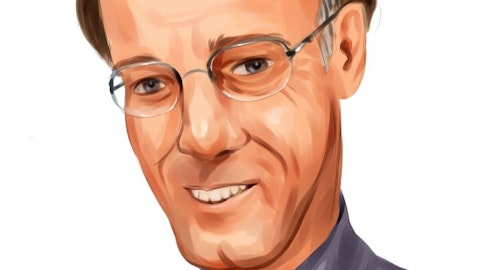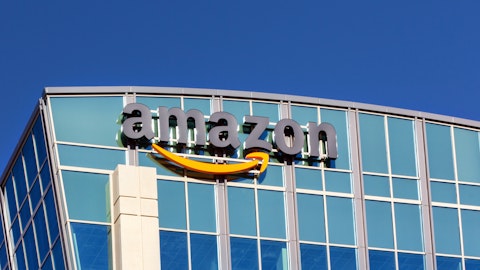As Apple Inc. (NASDAQ:AAPL) reported its financial results for the third quarter of fiscal 2015, the market was clearly disappointed as observed by the stock’s immediate 7% drop in after-hours trading. The main factor that led to the stock’s decline have been weaker than expected iPhone sales, which came at 47.5 million units, up by 35% on the year, but below the estimate of 50 million. Nevertheless, it seems that the market has overreacted to the news by sending the stock lower. After all, Apple posted revenue of $49.6 billion and profit of $1.85 per share, significantly up from $37.4 billion and $1.28 per share a year earlier. The results also topped the estimates of both the analysts and the company.

Nevertheless, the decline of the stock might be good news for a number of bears, that are underweight Apple. One of them is the co-founder and research director of Insider Monkey, Dr. Ian Dogan. Mr. Dogan has been bearish on Apple for over a year now, and he is still quite skeptical regarding the sales of the iPhone for the long-term, as he said yesterday during an interview aired on CNBC. Taking into account that the main focus of the earnings has been the iPhone sales figure, Mr. Dogan has a point. Even though Apple Inc. (NASDAQ:AAPL) has a wide range of products and services, the main source of its revenue is the iPhone, which amasses more than 60% of sales. In addition to that, while the sales of iPhone climbed in annual terms, the sales of iPad declined by 18% on the year to $10.93 million units. And even though Apple has released the Watch earlier last quarter, its sales did not manage to offset the decline of revenue from iPad sales. During his interview with CNBC in June last year, Mr. Dogan also said that Apple’s margins were not sustainable for the long term and predicted that iPad sales (which had been declining at that point) will keep falling.
All in all, Mr. Dogan considers that Apple Inc. (NASDAQ:AAPL)’s dependency on iPhone sales will affect the company over the long-term, especially in case if the economic environment worsens. With a new recession, it is most likely that customers will refuse to pay a large premium for a new iPhone and will switch to other devices, which are already on Apple’s heels in terms of quality, but are offered at much lower prices.
Let’s take a look at the investor sentiment surrounding Apple Inc. (NASDAQ:AAPL). The stock has been at the top of our list of the most popular companies among hedge funds for years, with the latest data (for the first quarter of 2015) indicating that 150 investors hold long positions in the company. It’s easy to see why investors like Apple. The stock trades at 16 times earnings and 12 times forward earnings, which represent discounts of over 10% compared to the S&P 500. The company has more than $200 billion in cash as of the end of June, which allows the management to have one of the largest buyback programs on the market and to pay a dividend of $0.52 per share (with a yield of 1.50%).
However, a breakdown of hedge funds’ investments, show that overall, smart money are underweight Apple Inc. (NASDAQ:AAPL). Hedge funds that we track hold roughly $21.5 billion worth of stock, which represents less than 3% of the company’s market cap. In addition, the largest stake is held by billionaire Carl Icahn, who owns a $6.56 billion stake, which means that the rest of the investors hold in aggregate around $14 billion worth of Apple shares. In April, Mr. Dogan conducted a detailed analysis of the sentiment surrounding Apple and concluded that the largest portion of “noise” comes from smaller retail investors, while larger investors are not so optimistic. One of the main reasons for that is that at a market capitalization of more than $700 billion, there are not many possibilities to make any more easy money and the stock does not offer a margin of safety.
In conclusion, Apple Inc. (NASDAQ:AAPL)’s stock will most likely recover quickly from the 7% drop and will gain some momentum for the following months. However, if the company keeps relying on iPhone sales for too long, the profitability of the stock for the long term is under question.
The full video of the interview is available below:
Disclosure: none





